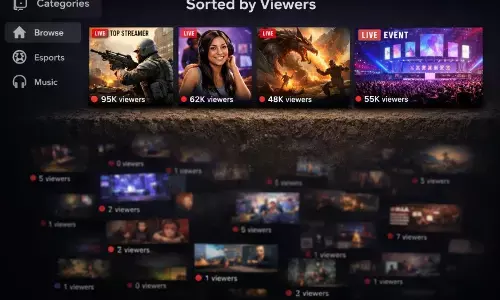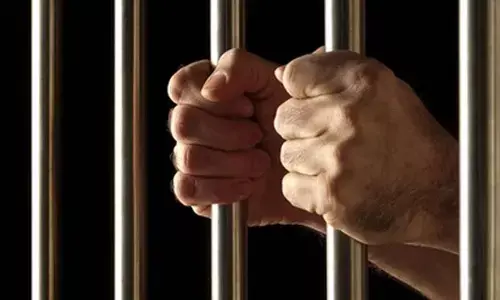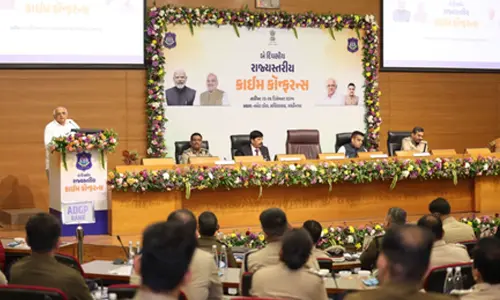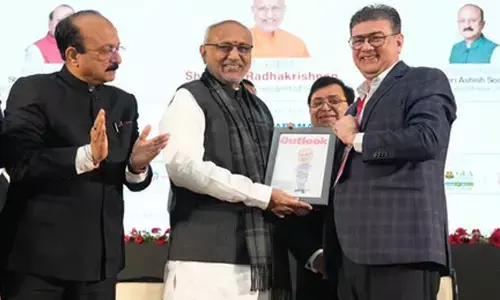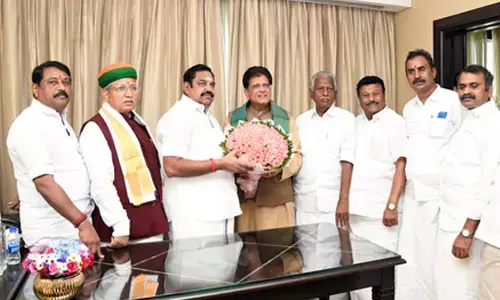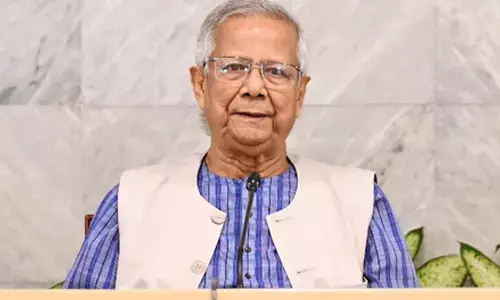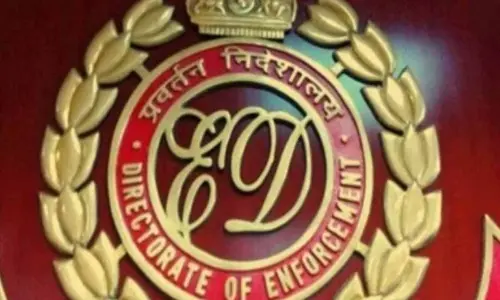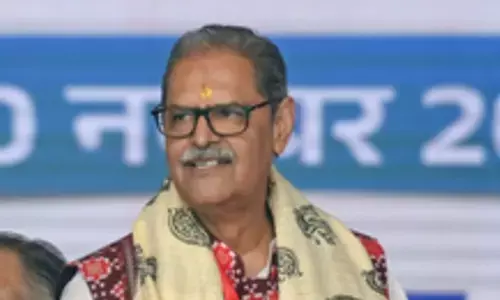Public Distribution System in Bangaru Telangana
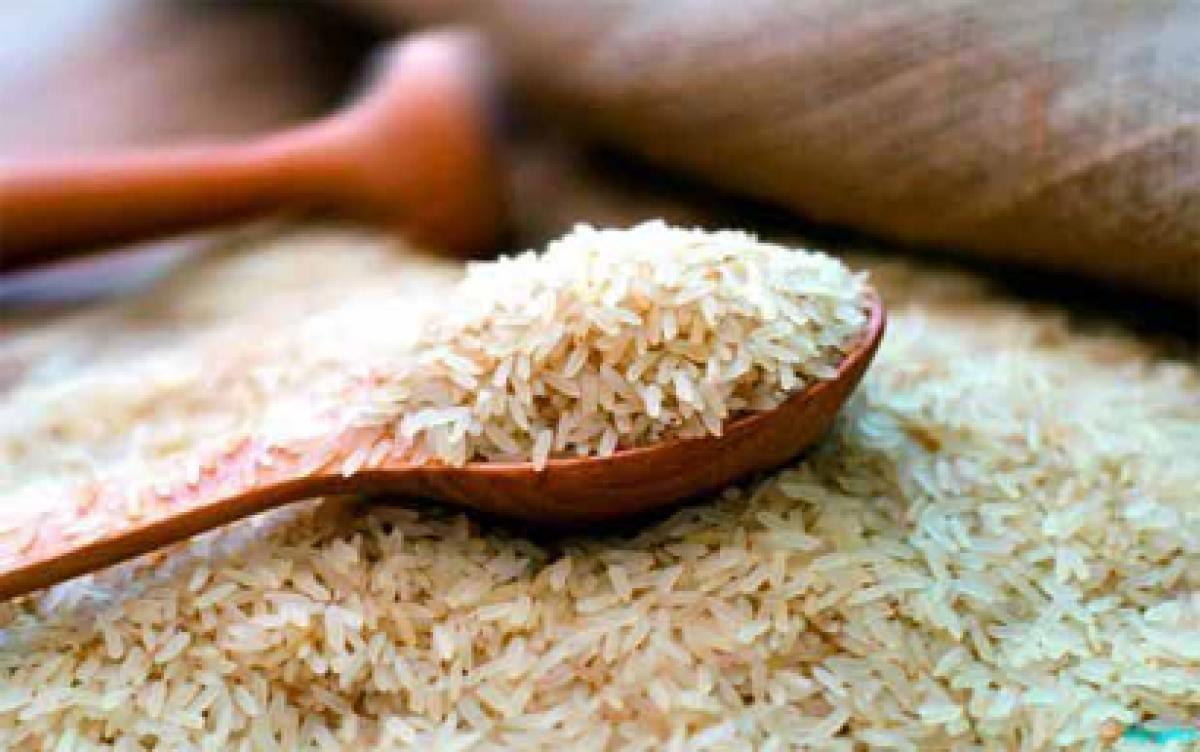
One of the Directive Principles of State Policy describes that it is the Duty of the State to raise the level of nutrition and the standard of living and to improve public health (Article 47).
One of the 'Directive Principles of State Policy' describes that it is the 'Duty of the State to raise the level of nutrition and the standard of living and to improve public health (Article 47)'. In fulfilling this objective, Public Distribution System Scheme was introduced in the country (later changed to Targeted Public Distribution System). Both Central and State Government combined operate Targeted Public Distribution System (TPDS). The Central Government is responsible for buying food grains from farmers at a Minimum Support Price (MSP) and allocates it to States. State governments are responsible for identifying eligible households under the Scheme and distribute it through Fair Price Shops.
Extent of Dependency on TPDS in Telangana
The South Indian States, especially Telangana has one of the best functioning TPDS systems in place. People's dependency on the TPDS in State could be assessed using the surveys conducted by the National Sample Survey Organisation (NSSO). The 68th NSSO Round on Consumer Expenditure provides data on State-wise Monthly Per Capita Consumer Expenditure (MPCE) and Monthly Per Capita Consumer Quantity (MPCQ) of households on Public Distribution System. Analysis of the unit-level data shows that Average MPCQ for rice consumed in Telangana State is 10.5 kg which is much higher than the national average of 5.79 kg, indicating that rice is the staple food in the State's. Of the total rice consumed, about 4.1 kg of rice is purchased from PDS, in other words, about 40% of the total rice consumed is purchased from PDS in Telangana.
Table -1: Average MPCQ Consumed Per Person in Telangana 2011-12
| PDS Quantity | Total MPCQ (in Kgs) | Portion purchased from PDS (in Kgs) | ||||
| MPCQ | Rural | Urban | Total | Rural | Urban | Total |
| Rice | 11.4 | 9.1 | 10.5 | 4.1 | 4.0 | 4.1 |
| Wheat | 0.3 | 0.8 | 0.5 | 0.3 | 0.5 | 0.4 |
| Sugar | 0.6 | 0.6 | 0.6 | 0.2 | 0.1 | 0.2 |
| Kerosene (in Liters) | 0.5 | 0.2 | 0.4 | 0.6 | 0.6 | 0.6 |
Source: Unit level data extracted from “Consumer Expenditure Survey 2011-12” of NSSO (68th Round).
The Monthly Per Capita Consumer Expenditure (MPCE) is a proxy for measuring the standard of living. From the Table 2, it is clear that total MPCE of rice in Telangana is about Rs. 176 while mere Rs. 5.6 was spent on PDS rice (0.03%). While 40 percent of total rice is bought from PDS, only 0.03 percent of rice MPCE is spent on the purchase of rice from PDS. This indicates that the PDS rice is helpful to the people in the State in offering rice at affordable prices.
Table 2: Average MPCE in Telangana in 2011-12
| MPCE | Total MPCE (Rs.) | Portion Spent on PDS (Rs.) | ||||
| Rural | Urban | Total | Rural | Urban | Total | |
| Rice | 160.8 | 199.1 | 176.4 | 5.4 | 6.2 | 5.6 |
| Wheat | 7.8 | 19.4 | 12.5 | 7.2 | 10.3 | 7.9 |
| Sugar | 18.1 | 19.9 | 18.9 | 2.7 | 2.1 | 2.6 |
| Kerosene | 8.7 | 4.7 | 7.1 | 8.4 | 8.7 | 8.4 |
Source – NSSO unit level Data of “Consumer Expenditure Survey 2011-12”
The National Food Security Act
The National Food Security Act (NFSA), 2013, passed by the Indian Parliament in September 2013, seeks to make the right to food a legal entitlement by providing subsidised food grains to nearly two-thirds of the population. The Act has tremendous importance for a country like India which has a high level of malnutrition and hunger. The Act relies on the existing Targeted Public Distribution System (TPDS) mechanism to deliver the food entitlements envisaged under the Act.
| Box-1: Salient Features of the National Food Security Act, 2013 |
|
The Government of Telangana has been implementing the NFSA from 01.01.2015. Enactment of NFSA is a paradigm shift and changed the food security scenario in the State.
Implementation of the Food Security Act in Telangana:
The Food Security Act mandates the State to supply 5 kg of rice per head without any ceiling on the monthly draw by a household at Rs. 3 a kg. It also restricts the eligibility criteria on those households with three-room houses and those having 5 acres dry or 2 acres wetland in addition to the income limit. However, in order to increase the coverage of the people availing TPDS, Government of Telangana constituted a Cabinet Sub-Committee on Civil Supplies, under the Chairmanship of Hon’ble Minister for Finance and Civil Supplies. Based on the Committee’s recommendations, income limit has been enhanced for rural areas to Rs. 1.50 lakhs and to Rs.2 lakhs in urban areas. The ceiling on holding of land has also been increased to 3.5 acres of wetland and 7.5 acres of dry land.
District wise Distribution of Food Security Cards: As per the new Act, TPDS covers about 82 percentage of total State's population. District wise distribution of Food Security Cards (FSCs) reveals that highest number of cards were issued in Rangareddy District (about 11.8 lakh cards were issued covering 39.3 lakh population). About 11 lakh FSCs were issued in Karimnagar covering 31.7 lakh persons. In Mahabubnagar District, 10.7 lakh cards were issued covering 36.4 persons (see Figure 1). Least number of cards were issued in Nizamabad (6.3 lakh), followed by Khammam (7.3).
Provisioning under NFSA
Re.1 a Kg Rice Scheme: As rice is the staple food in Telangana, affordability of it is critical for food security in the State. Under NFSA, beneficiaries are supplied with 6 kg. rice per person without any ceiling on a number of members in the family at Re.1 per kg. is being provided from 1st January 2015. The AAY cardholders will also get 35 Kgs of rice per month per family at Re. 1 per Kg.
At present, the State Government is supplying rice at 6 kgs per unit to 2.86 crore persons at Re.1 per kg as against the Government of India coverage of 1.91 crore persons at 5kg per unit under NFSA, 2013. A quantity of 1.80 lakh MTs of rice is being released per month under the Scheme. The budget allocation of Rs.2200 crore has been provided for rice subsidy scheme during 2015-16.
Redgram Dal: One kg of red gram dal is being supplied to Below Poverty Line (BPL) families at a subsidized rate. The government is providing a fixed subsidy of Rs. 50 per Kg of red gram dal. From October 2015 to December 2015 One Kg packet of red gram dal is being sold at Rs. 108.50 and the monthly off-take of Dal during the third quarter are about 5500 MTs.
As the price of Tur dal (red gram) witnessing unprecedented rise during recent times, Government issued instructions on 31.10.2015 to open special counters for sale of red gram dal at Rs. 135/- per kg to the consumers. As on 21.12.2015, 162 special counters have been opened across the State and a quantity of 1,229 QTLs of red gram dal has been sold.
Free-Flow Iodized Salt: One kg of iodized salt is being supplied to all BPL cardholders at Rs. 5/- per kg. The monthly off-take of Iodized Salt in the present quarter is about 1200 MTs.
Kerosene: The Government of India allotted 14,544 Kilo Ltrs of kerosene oil to Telangana State and the same is being re-allocating to the districts to both LPG and Non-LPG connection holders. Per month allocation of kerosene to BPL families is as follows: 4 Ltrs to the non-LPG household in Municipal Corporations area, 2 liters to the non-LPG household in municipalities and Mandal headquarters, 2 liters to non-LPG in rural areas and 1 liter to households having LPG connection.
Deepam Scheme: With a view to reducing dependence on the forest for firewood, improve their health status, remove drudgery due to conventional cooking, Government is subsidising LPG cylinder and regulator to women belonging to the poor sections of the society duly paying the security deposit to Oil Companies. The Government made a budget provision of Rs.50 crore for Deepam scheme in 2015-16 for allotment of 3,12,500 LPG connections. Further, the Oil Marketing Companies would be covering up to 10 lakh additional BPL beneficiaries under Corporate Social Responsibility Scheme initiatives.
Initiatives to Strengthen the Public Distribution System in the State
The government of Telangana is initiated a number of measures to strengthen the Public Distribution System by way of removing bogus beneficiaries from the list of beneficiaries, automation etc.
1. Aadhaar Seeding: The list of beneficiaries of Food Security Cards has been seeded with Aadhaar numbers. The seeding of Aadhaar through e-PDS resulted in a removal of about 21 lakh bogus/duplicate beneficiaries (non-existing/dead/migrated persons) from the beneficiaries list, savings Rs.31.27 crore per month for the State's exchequer.
2. Fair Price Shop Automation with ePoS devices: The ePoS devices work with Aadhaar based biometry, wherein the biometrics (finger prints of the members of the ration card) will be captured at the time of draw. Ration will be delivered to them only when the biometric finger prints are matched. Thus, ePoS implementation will not only provide ration to the genuine beneficiaries but also results in saving subsidy burden on Government by way of removing bogus draws. At present automation ePoS devices are being implemented in 1545 Fair Price Shop in GHMC area on pilot basis.
3. End-to-end Computerisation of Targeted Public Distribution System: National Informatics Centre (NIC) has developed “ePDS” software 'End to End Computerisation' of TPDS' which helps the Civil Supplies Department in allocating essential commodities, digitize the ration card data, seeding the ration card database with Aadhaar so as to eliminate bogus or ineligible persons and also to carry out mutations received from the beneficiaries through Mee Seva. ePDS also has a provision for making available the reports in public domain bringing more transparency in the system.
4. Grievance Redressal Mechanism: As per the NFSA, 2013, a dedicated grievances redressal cell is set up to for receiving complaints and queries from the public and being forwarded to the concerned officers for redressal.
G.Rajendera Kumar








